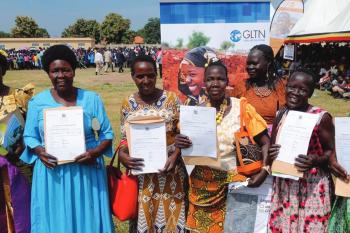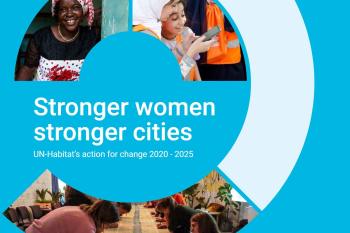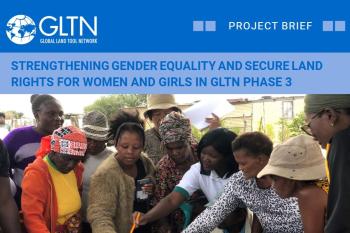
Read More
Gender Strategy for Land-at-Scale Uganda
Women’s Land Rights (WLRs) are fundamental human rights, foundational to gender equality and women’s dignity and instrumental in improving food security, effective climate action, poverty eradicati

GLTN already has numerous interventions in Uganda particularly in regards to piloting the Social Tenure Domain Model (STDM) in collaboration with Slum Dwellers International/ACTogether and government authorities; the use and application of the Gender Evaluation Criteria (GEC) in more than 10 districts by the Uganda Land Alliance (ULA), an affiliate of the International Land Coalition (ILC); and as an identified priority country with the International Fund for Agricultural Development (IFAD)-supported Land Tenure Security Learning Initiative for East and Southern Africa (TSLI-ESA).
This Plan of Action (PoA) for Uganda articulates the objectives, partnerships and change model linked to GLTN’s interventions in the country. It presents a fit-for-purpose change vision to guide GLTN’s support to government and partners. The fit-for-purpose change model for GLTN’s engagement in Uganda combines the Results-Based Management (RBM) approach, Soft Systems Methodology (SSM), capacity development and the impact pathways framework for improved tenure security for the urban and rural poor.

Women’s Land Rights (WLRs) are fundamental human rights, foundational to gender equality and women’s dignity and instrumental in improving food security, effective climate action, poverty eradicati

This publication presents a summary of UN-Habitat’s gender equality impact over the past five years, in line with the Beijing reporting cycle.

GLTN’s institutional commitment to gender equality and secure land rights for women and girls has been at the core of its work since inception in 2006.